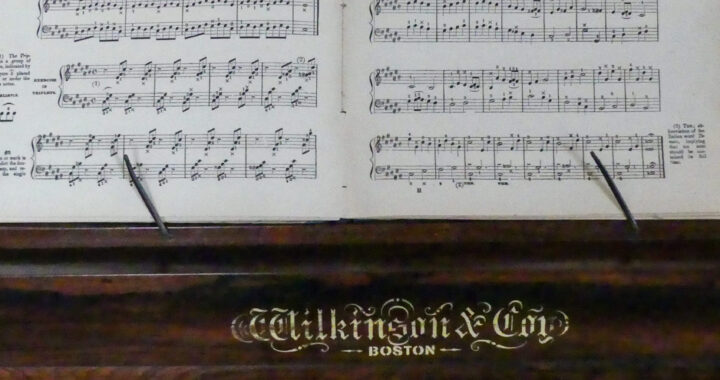The Emily Dickinson Museum’s Poetry Discussion Group meets monthly, September through May, for lively conversation about Emily Dickinson’s poetry and letters.
Join us from 12pm to 1:30pm on Zoom for a discussion on March 19 or March 26. Space is limited. Please submit a registration request via this google form.
This program is free of charge, but we encourage those who are able to do so to make a donation after the program.
Topic: Yankee Doodle Variations: Emily Dickinson and Improvisation
The basic facts of Emily Dickinson’s known musical life have been well documented. She was said, at age 2 1/2, to enjoy playing “the moosic” on her aunt Lavinia’s piano. As a child, she took singing lessons, and later sang alongside other students at Mount Holyoke Female Seminary, where she also likely heard the Hutchinson Family Singers perform. In her twenties, she wrote of hearing the internationally famous soprano Jenny Lind, collected dozens of pieces of sheet music, and earned a reputation as a striking improviser at the piano. In fact, the Hutchinsons and Lind, among other performers Dickinson heard, were also widely recognized for their improvisations.
Dickinson’s musical knowledge informed the writing of her poems. Judy Jo Small and other critics have noted that many poems follow familiar patterns of hymns, nursery rhymes, and ballads. Dickinson also wrote about music in letters and poems, demonstrating a nuanced grasp of musical principles. Finally, her poems’ formal qualities demonstrate the influence of improvisational performance practice. Those she kept for herself, in private, contain alternate words and markings, something like the annotated scores of a performing musician. Those she sent to friends and family were customized, often making use of these variants but seldom containing variants themselves. These function something like the extemporaneous piano performances for which she was known.
To set the stage for this discussion, I will begin by presenting some foundational information about Dickinson’s musical life and interests, including how people of her time experienced and thought about improvisation and spontaneity more generally, both in music and in writing. Then we will discuss several poems – and perhaps a letter or two – that touch on music in social and natural settings. We will close by discussing a poem across several extant manuscripts, as an example of improvised poetic performance.
About the Facilitator
Gerard Holmes completed a PhD in English Literature in 2020, at the University of Maryland, College Park, with a dissertation titled “‘Discretion in the Interval’: Emily Dickinson’s Musical Performances.” He has published in The Emily Dickinson Journal, Reception, and Women’s Studies, a special themed issue, “New Directions in Dickinson and Music,” which he also co-edited. He contributed a chapter to the forthcoming Oxford Handbook to Emily Dickinson.
